The Black Sea Grain Initiative (BSGI) became a necessity because of Russia’s unjustified and unprovoked full-scale invasion of Ukraine, its massive and targeted attacks on Ukrainian infrastructure, its maritime blockade of Ukraine, its harassment of and attacks on civilian shipping, its minelaying, communications jamming, electronic interference and cyber-attacks in the Black Sea.
The grain deal was terminated on July 17 supposedly because parts of the initiative concerning Russia had not yet been implemented, Russian presidential spokesman Dmitry Peskov said.
The termination of the Black Sea Grain Initiative (BSGI) did not create a new security situation. It only reverted to the situation one year ago. Russia has been conducting maritime warfare in the northern Black Sea from the first day of the full-scale war. Its operations have resulted in collateral damage, the closure of commercial ports and a stop in maritime trade. Ukraine has been exposed to a limited maritime blockade (Sea of Azov) since April 2018 and a full blockade since February 2022.
According to a statement released by the Russian Ministry of Foreign Affairs (MFA) on July 17, the maritime humanitarian corridor was closed and the Joint Coordination Center (JCC) in Istanbul was disbanded as of July 18.
The reason for its termination ignored the root cause for the necessity of the BSGI: Russia’s unjustified and unprovoked war. Instead, it focused on “arguments” that promoted Russian interests. According to the Russian MFA, not enough grain has reached poor countries under the deal. This argument has been thoroughly refuted by the General Secretary of the UN and the UN World Food Programme (WFP).
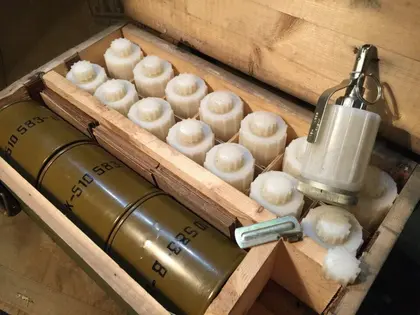
US Accuses Russia of Using Chemical Weapon in Ukraine
UN Secretary-General António Guterres said that Russia’s decision to terminate the BSGI in effect ended a “lifeline” for hundreds of millions worldwide facing hunger and spiraling food costs. The UN has argued that the arrangement has benefited all states by helping lower food prices by more than 20 percent globally.
WFP deputy chief, Carl Skau, has pointed out that Ukrainian grain is a primary UN food aid source because of its proximity to many of WFP’s operations. The BSGI has allowed WFP to procure 80 percent of its wheat grain purchases in 2023 from Ukraine (up from 50 percent in 2021 and 2022).
At the recent Russia-Africa summit, African leaders called on Russian President Vladimir Putin to end the war against Ukraine and return to the "grain agreement". While they refrained from directly criticizing Russia, their statements were more coherent and decisive than normal. They were meant to serve as a reminder of their concerns about the consequences of Russia's war, primarily the rise in food prices.
Russia argued that it had acted in good faith and demonstrated a responsible approach to fulfilling its duties as a party to the agreement, but that Ukraine and the West had failed to live up to their commitments. An analysis by the Black Sea News, however, demonstrates that the BSGI was slowly being stopped altogether because the Russian inspectors at the JCC were deliberately slowing inspections. The number of ships arriving at Ukrainian ports in June was only 15 percent of the numbers from September 2022. At times, nearly 100 ships were waiting for inspection in the Bosporus. In April, vessels were waiting for an average of more than a month.
On July 25, the Defense Intelligence of Ukraine (DIU) published a classified report for Russia's top military and political leadership, which contains information on the obstruction of the grain deal. According to the report, Russia actively used the JCC to minimize the volume of grain exported under the grain agreement.
"High-quality inspection of vessels”, temporary suspension of the agreement (with the consequential follow-on effects), restriction of access of ships to the port of Pivdennyi, reduction of the number of inspection teams, and the stop of registration of grain carriers were some of the tools used to reduce the outflow of Ukrainian grain to the world markets.
DIU’s report were supported by the realities at sea and the findings of the Black Sea News.
Russia's main argument, however, was that the West was sanctioning Russian food and fertilizers in violation of the BSGI. That’s false. While food and fertilizers have never been sanctioned, sanctions-related restrictions on its banking, transit and insurance make trade untenable.
In the article “Russia is extorting the West over grain. Appeasement will not work” in The Washington Post, Yevgeniya Gaber, an Odesa-based Ukrainian foreign policy and security expert and a nonresident senior fellow at the Atlantic Council. pointed out that:
“The deal has worked out very well for Russia. The country saw a significant increase in grain and fertilizer exports, according to its own statistics. In 2022, grain cargo turnover at Russian seaports increased by more than 6 percent year-on-year, amounting to 45 million tons, while mineral fertilizer turnover rose by 25 percent, reaching 24 million tons. The indicators for the first four months of 2023 were even higher. From January to April, grain transshipment in Russian ports more than doubled to more than 22 million tons, and that of mineral fertilizer nearly doubled to more than 10 million tons.
During the same period, Ukrainian grain exports have dramatically declined. Ukrainian farmers’ crop yields have been decimated, with many of their fields indiscriminately shelled and mined. Meanwhile, Russia continues to export grain from the occupied territories. It has changed the port of origin for stolen grain shipments, spoofed electronic tracking devices, faked paperwork to evade international sanctions and mixed stolen Ukrainian grain with its own. Even as early as December, the estimated losses from grain theft exceeded $1 billion in lost revenue to Ukraine.”
The bottom line is that Russia’s claims connected to the BSGI are disinformation at the same level as the alleged promise that NATO would not enlarge, its claim of a “historical unity of Russians and Ukrainians”, the so-called “civil war” in Ukraine, its claim that Crimea was always Russian, its justification of its full-scale war (including the need for "demilitarization" and "denazification" of Ukraine), its claim that the atrocities in Bucha were staged, its denial of war crimes, genocide and ecocide, its claims of US bio-laboratories in Ukraine to work on new bioweapons, claims of Ukrainian false-flag operations to sabotage its own nuclear power plants, and more. Much more. And all equally absurd.
At the UN Security Council meeting on Ukraine on July 21, Ambassador Barbara Woodward (UK) stressed that Russian food and fertilizer exports have never been sanctioned. The sanctions-related restrictions on its banking, transit and insurance are, however, making trade untenable.
Russia has weaponized food to force the international community to lift sanctions imposed against it in response to its war of aggression against Ukraine, for its illegal annexation of Donetsk, Luhansk, Zaporizhzhia and Kherson regions, and the Crimea Peninsula; its forced deportation of children; and its horrendous war crimes.
Instead of withdrawing its forces and ending its war of aggression to help persuade the international community to lift the sanctions, it has decided to escalate and blackmail the world.
Russia is seeking “negotiations” on problems of its own making. That is called blackmail. Russia’s aggression should not be rewarded. In the words of Yevgeniya Gaber, “Acquiescing to Russia’s demands would only postpone the moment of reckoning. Investing time, money and diplomatic effort in reviving a semi-defunct grain deal would only give Russia the tools to apply pressure later at a time of its choosing.”
If nothing else, nearly a decade of negotiations with an aggressor willing to use all means available to achieve its strategic aim and objectives, with a dysfunctional worldview, a grudge against the West and Global Power ambitions at the cost of its neighbors, has no merits. It has turned peace into conflict and full-scale war.
The West must not negotiate with a terrorist using food as a weapon. It needs to defend humanitarian shipping. The West needs to return to the Black Sea to help break the maritime blockade, protect humanitarian shipping to fight global famine and, not least, uphold universal Freedom of Navigation.
Failure to engage will have local, regional, and global repercussions.
The views expressed are the author’s and not necessarily of Kyiv Post.
You can also highlight the text and press Ctrl + Enter


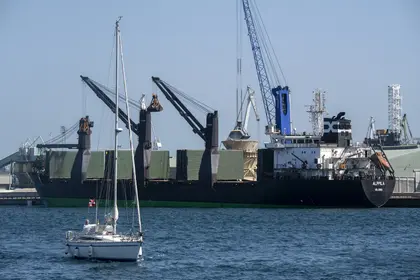
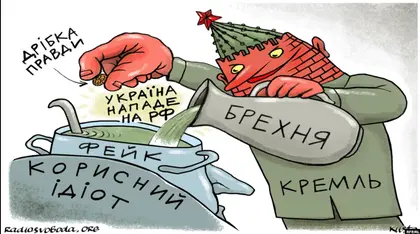
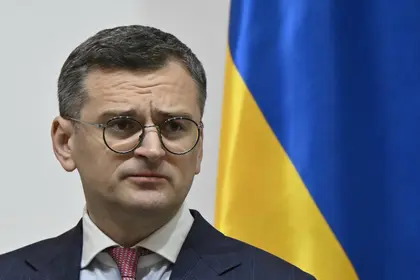
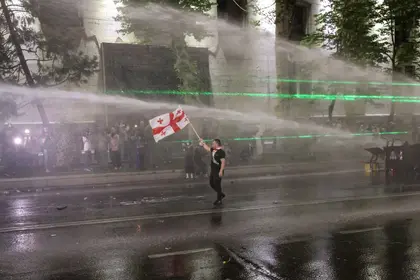
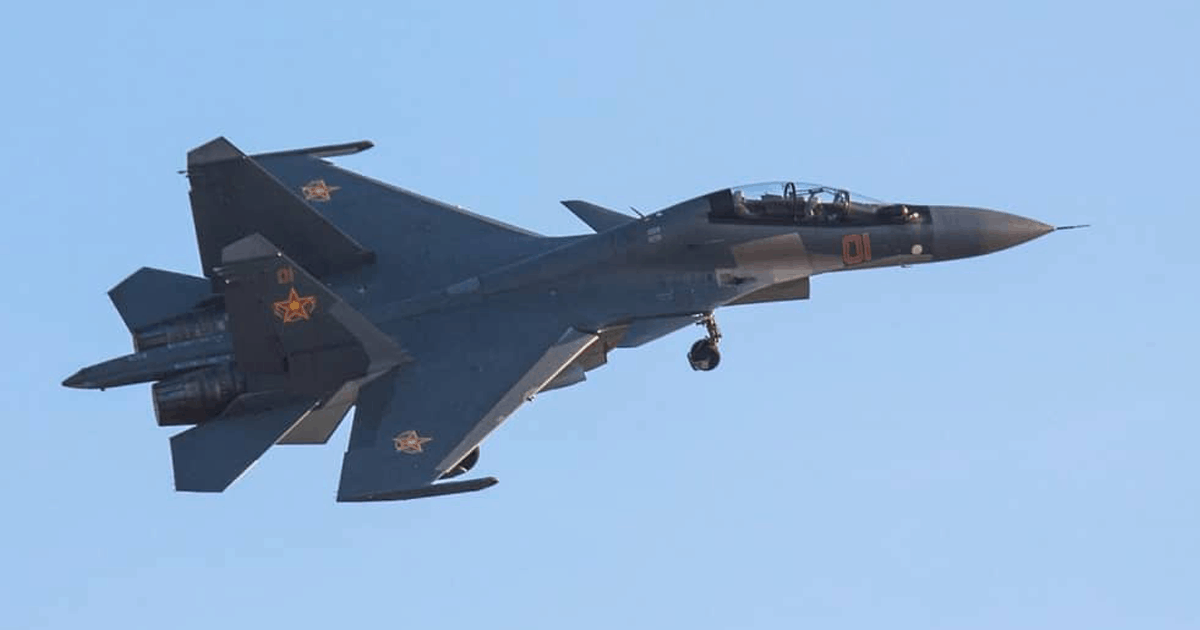
Comments (4)
It is possible that eventually Turkey will turn on Russia, thus making the Russian Black Sea navy landlocked. For now, a few NATO ships and planes will pin back the bear’s ears.
It will be necessary for Turkey to escort Ukrainian grain, as they have rights in the Black Sea Russia cannot question, and can represent NATO.
Ya'll do understand that by treaty, no warships other than those of Black Sea nations may pass the Bosphorus, right? So how exactly is NATO to intercede?
@Jerome, Theoretically, at least, Turkey is a NATO member. It has rights in the Black Sea and could use its own war ships to escort Ukrainian grain.
NATO needs to have warships in the Black Sea and aircraft over it to support freedom of the seas.
Meanwhile in Moscow, one man makes all the military decisions, which is a recipe for disaster.
Putin has no regard for human life other than his own. This is the principal characteristic of a homicidal
Live by the sword………….